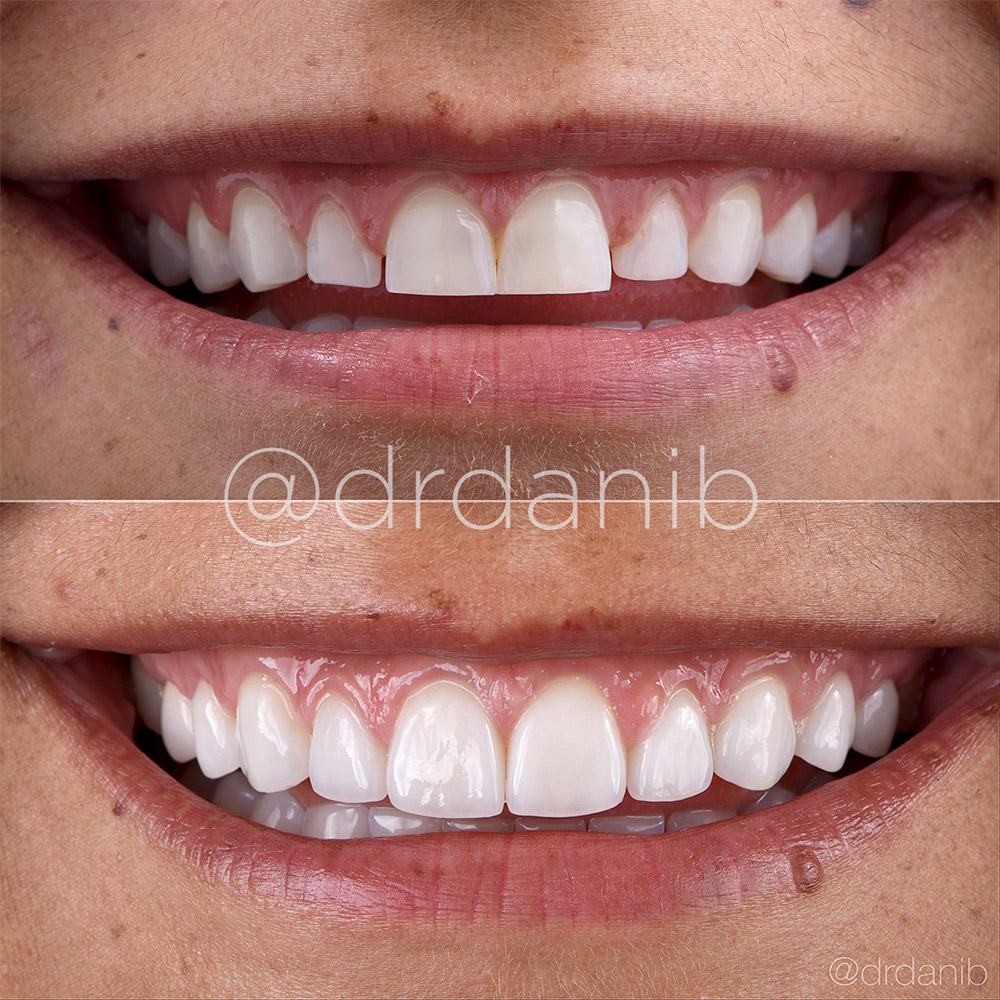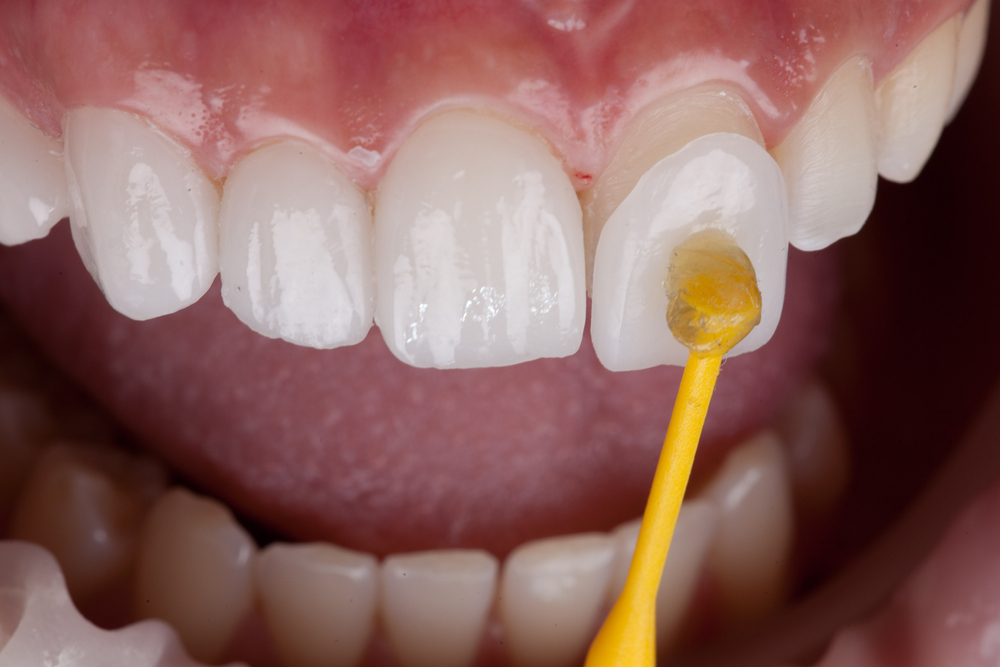The Complete Overview of Veneers: Types, Uses, and Their Effect on Your Smile
Veneers act as a preferred option for people looking for to enhance their oral aesthetics. These custom-crafted shells can effectively mask blemishes such as staining and gaps. With two key types readily available, porcelain and composite resin, each offers distinctive benefits and limitations. The impact of veneers expands past simple look, influencing self-worth and social interactions. Recognizing their advantages and types is crucial. What might this mean for one's general lifestyle?
Comprehending Veneers: What They Are and Just how They Work
Veneers are thin shells, usually made from porcelain or composite resin, that are custom-crafted to fit over the front surface area of teeth. They serve both practical and visual purposes, providing a solution for numerous oral imperfections such as staining, voids, and minor misalignments. By adhering to the tooth enamel, veneers develop an all-natural look while improving the shape and color of the teeth.
The process generally involves a preliminary appointment, where a dental professional assesses the person's requirements and talks about wanted results - Porcelain Veneers Dentist. Following this, a very little amount of enamel may be gotten rid of to suit the veneer. Impacts of the teeth are after that taken to guarantee an accurate fit. Once made, the veneers are adhered safely to the teeth utilizing a special dental adhesive. This procedure not just boosts the smile's look but also helps secure the underlying teeth from further damages, making veneers a prominent choice for numerous looking for a smile remodeling
Sorts of Veneers: Porcelain vs. Compound Material
The difference between porcelain and composite material veneers lies in their material structure and features. Each type offers varying levels of longevity, price, and sturdiness, influencing patients' selections based on their private needs. Comprehending these differences is essential for making a notified decision regarding oral enhancements.
Material Differences Discussed
While both porcelain and composite material veneers serve the very same cosmetic purpose, they differ considerably in product residential or commercial properties, durability, and visual results. Porcelain veneers are crafted from a ceramic product that mimics the natural transparency of teeth, supplying a lifelike look. Their smooth surface is resistant to discoloration, making them an appealing option for those seeking a long-lasting aesthetic. In comparison, composite resin veneers are made from a tooth-colored plastic material, providing adaptability and simplicity of application. However, they may not achieve the same level of illumination or clarity as porcelain. Furthermore, composite veneers can be much more easily formed and repaired, making them a much more flexible choice in certain dental situations. Each kind offers one-of-a-kind advantages tailored to individual choices.
Long life and Longevity
When contrasting porcelain and composite material veneers, long life and sturdiness are significant variables. Porcelain veneers are recognized for their toughness, usually enduring 10 to 15 years with proper treatment. Their durability versus tarnishing and cracking makes them a preferred selection for people looking for long-lasting results. On the other hand, composite material veneers typically have a shorter life-span, averaging 5 to 7 years. While they can be repaired a lot more conveniently if damaged, they are extra susceptible to put on and discoloration with time. The option in between these materials frequently depends on the individual's lifestyle, aesthetic objectives, and maintenance choices. Eventually, recognizing the differences in long life and resilience can direct individuals in choosing the veneer type that ideal matches their requirements.
Cost Comparison Insights
When selecting between porcelain and composite material veneers, cost is a critical consideration. Porcelain veneers typically range from $800 to $2,500 per tooth, mirroring their toughness, aesthetic appeal, and resistance to staining. These veneers need a much more extensive procedure and specialized laboratory work, contributing to their greater price tag. In contrast, composite material veneers are typically much more budget friendly, setting you back between $250 and $1,500 per tooth. They can be applied in a single see, which reduces labor costs. Nonetheless, composite veneers may require much more constant substitutes, possibly boosting lasting expenditures. Ultimately, the selection between porcelain and composite resin veneers depends upon specific budget plans and wanted results, stabilizing preliminary prices against durability and aesthetic outcomes.
The Advantages of Deciding On Veneers for Your Smile
Picking veneers supplies significant advantages for those looking for an enhanced smile. Their boosted aesthetic allure can transform the look of teeth, while their stain-resistant buildings ensure a lasting illumination - Veneers Teeth. This combination makes veneers a prominent alternative for people looking to accomplish a flawless smile
Enhanced Aesthetic Charm
Veneers commonly emerge as a preferred remedy due to their transformative visual benefits when people look for to enhance their smiles. These thin coverings, typically made of porcelain or composite material, can properly hide blemishes such as chips, spaces, and misalignment. By imitating the natural look of teeth, veneers offer a seamless, radiant smile. Their customizable nature enables a tailored strategy, making it possible for people to pick tones and shapes that finest match their facial attributes. Furthermore, veneers can develop an uniform look, improving general facial symmetry. This visual improvement not just enhances self-confidence but can likewise favorably influence personal relationships and social interactions, making veneers a preferred choice for those looking to attain a brighter, a lot more appealing smile.
Discolor Resistance Advantages
Veneers not just enhance aesthetic appeal however also offer substantial discolor resistance, making them an eye-catching alternative for people worried concerning keeping an intense smile. Made up of long lasting materials such as porcelain or composite resin, veneers are less porous than all-natural teeth, which assists prevent the absorption of stains from usual offenders like coffee, tea, and merlot. This integral stain resistance permits people to appreciate their favored beverages without bothering with discoloration. Veneers Teeth. In addition, the smooth surface area of veneers makes them much easier to tidy, more boosting their longevity and preserving their excellent appearance. As an outcome, veneers offer a sensible solution for those seeking both appeal and capability in their oral care
The Process of Obtaining Veneers: What to Expect

The process of obtaining veneers might appear daunting, understanding the actions involved can reduce problems. Originally, an examination with a dental expert is required to identify if veneers are the suitable service for the individual's oral issues. During this consultation, the dental expert will discuss wanted outcomes and take perceptions of the teeth.
Next, a 2nd appointment is scheduled for tooth preparation, where a percentage of enamel is usually removed to accommodate the veneers. Momentary veneers may be put while the custom ones are crafted in a dental lab, which usually takes a couple of weeks.
When all set, the dental professional will certainly put the veneers, making certain correct fit and color prior to bonding them to the teeth making use of a special adhesive. After last modifications, the dental expert will give support on treatment. Understanding these actions can help people really feel a lot more comfortable and informed throughout the veneer procedure.
Maintenance and Take Care Of Your Veneers
Maintaining veneers calls for regular like ensure their durability and appearance. Correct dental hygiene is vital; brushing twice daily with a non-abrasive toothpaste and flossing routinely aid stop plaque buildup around the veneers. Furthermore, regular dental exams are essential for keeping an more eye on the condition of the veneers and attending to any type of prospective problems beforehand.
When attacking to avoid damage, clients ought to prevent hard foods and too much pressure. It's also a good idea to restrict consumption of tarnishing materials, such as coffee, tea, and merlot, as these can influence the veneers' shade over time.

Transforming Your Smile: Real-Life Effect of Veneers
A glowing smile can substantially enhance one's self-confidence and general look. For several individuals, veneers function as a transformative service, efficiently dealing with various oral worries such click this link as discoloration, spaces, and imbalance. These slim coverings, personalized to fit over the front of the teeth, can create a harmonious and aesthetically pleasing smile.
Real-life cases illustrate the profound influence veneers can have. Patients commonly report a prompt increase in self-confidence and social communications following their procedure. The newly found self-confidence can cause more chances in specialist and individual life, as individuals really feel more inclined to engage and reveal themselves.
Furthermore, the mental advantages extend beyond plain appearance; lots of experience boosted mental well-being as they accept their smiles. Veneers not just boost physical characteristics however additionally contribute significantly to total top quality of life, underscoring their value in cosmetic dentistry.
Regularly Asked Concerns
For How Long Do Veneers Typically Last Before Requiring Replacement?
Veneers usually last in between 10 to 15 years prior to calling for substitute. Elements such as oral health, oral routines, and the kind of material made use of can affect their long life and total longevity. Normal dental examinations are advisable.
Can Veneers Be Removed, and if So, Exactly how?
Yes, veneers can be gotten rid of. A dental professional typically utilizes specific devices to meticulously remove them from the teeth, making sure minimal damage to the underlying enamel, commonly followed by required changes or remediations for suitable appearances.
Are Veneers Suitable for Everyone's Oral Problem?

Will Getting Veneers Pain or Require Anesthetic?
Getting veneers usually includes very Get the facts little discomfort, and lots of individuals get neighborhood anesthesia to guarantee a pain-free experience. Level of sensitivity might take place temporarily afterward, but many locate the process bearable and are satisfied with the results.
Exactly How Do Veneers Affect Tooth Sensitivity After Positioning?
Veneers can briefly raise tooth level of sensitivity because of the removal of enamel and the bonding procedure. Many individuals experience a decline in sensitivity in time as the teeth get used to the brand-new veneers.
Veneers are slim coverings, usually made from porcelain or composite resin, that are custom-crafted to fit over the front surface area of teeth. Porcelain veneers are crafted from a ceramic material that imitates the natural translucence of teeth, supplying a natural appearance. Porcelain veneers usually range from $800 to $2,500 per tooth, mirroring their toughness, aesthetic appeal, and resistance to discoloration. In comparison, composite resin veneers are generally more affordable, costing in between $250 and $1,500 per tooth. Composed of resilient products such as porcelain or composite resin, veneers are much less permeable than all-natural teeth, which aids prevent the absorption of spots from common culprits like coffee, tea, and red white wine.